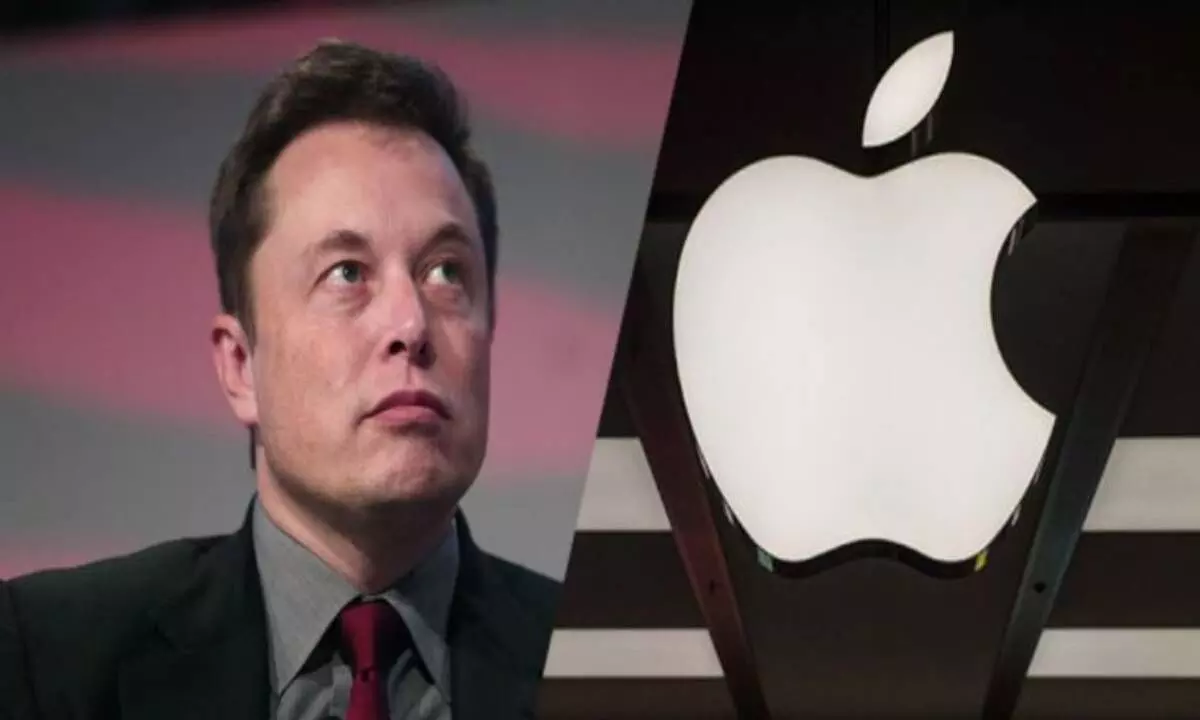Elon Musk now aims Apple's App Store fee policy, criticizes app fees
Apple takes a 30 percent cut from all the paid app revenues and in-app purchases of apps downloaded from the App Store.
image for illustrative purpose

Apple takes a 30 percent cut from all the paid app revenues and in-app purchases of apps downloaded from the App Store.
Elon Musk has had a chaotic month at the helm on Twitter. A month which has already included firing most of the company's employees, tinkering with key features and restoring banned accounts of controversial figures. And he's not done just yet.
The Twitter CEO's latest bout is with arguably the biggest player in the tech world. Musk recently took aim at Apple with a flurry of tweets, saying the company had cut its Twitter advertising and threatened to bump the social media network from its App Store. He asked whether Apple hated free speech, criticised its app fees, and even pondered whether the tech giant might go after another of his companies, Tesla.
While Musk has openly advocated for free speech, that's not backed up by his past actions and even recently at Twitter. As to whether Apple will target Tesla and Musk's other companies, that remains to be seen. But does Musk have a point when criticising Apple's App Store fees? Hopefully, rolling back the clock will answer that question.
Apple takes a 30 percent cut from the revenue earned by all the paid apps and in-app purchases of apps downloaded from the App Store. While Musk has criticised this as a "hidden 30% tax", it is anything but. Apple's App Store tax was announced back in 2008, rather openly by then CEO Steve Jobs.
However, since then, the Cupertino, California-based tech giant has faced a ton of criticism and recently modified its policy, introducing the 'Small Business Program' in January 2021. This allows small-time businesses and developers to cut App Store fees by half (15 percent), if their business falls below the $1-million threshold. Here's an in-depth look at how it works. The company also recently announced revisions to its App Store Review Guidelines.
Apple has also made other concessions since January 2021. In October last year, Apple updated its App Store rules to allow developers to contact users directly about payments, a concession in a legal settlement with companies challenging its tightly controlled marketplace. Developers can ask users for basic information such as names and email addresses, "as long as this request remains optional", said the iPhone maker.
However, for some companies, the ability to redirect users to an out-of-app payment method is not enough —they want players to be able to pay directly without leaving the app as users might be hesitant to trust third-party games and apps or might simply not want the additional hassle.
So was Musk right to criticise the steep App Store fees? According to industry experts, Musk appears to be in the right here. And Although Musk's criticism seems 'selfish' rather than 'selfless', fees on both the App Store and Android's Google Play store are excessive, they say. While Apple's efforts to alleviate some of the burden from developers are appreciated, that has come after years of struggle and constant pressure.
Several critics have pointed out that even taking into account maintenance costs, the exorbitant App Store and Google Play store fees simply cannot be justified. It remains to be seen how Musk's latest saga with Apple will play out. But given his more recent actions, chances of a peaceful resolution seem slim. And the hefty app store fees don't look like they are going away anytime soon.

